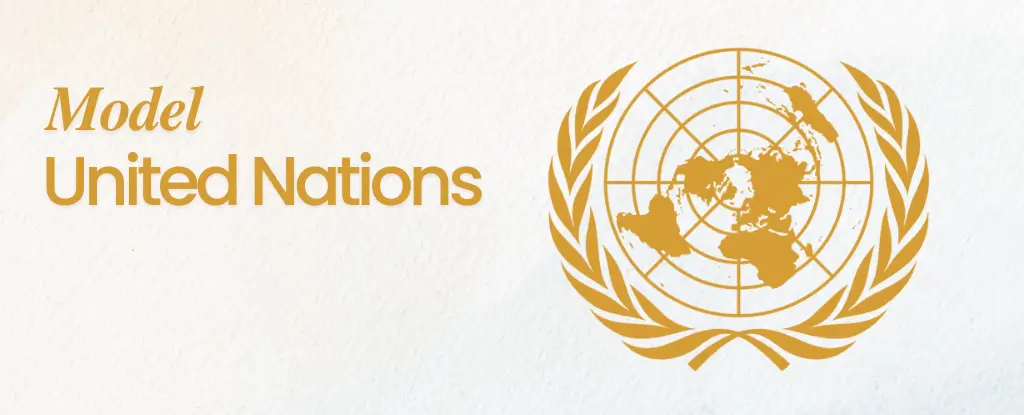Model United Nations (MUN) offers students a chance to simulate international organizations like the United Nations. It encourages critical thinking, global awareness, and leadership. At CMS, MUN is key to developing responsible citizens and future leaders. Students gain skills in diplomacy, public speaking, and international relations, while reflecting Vasudhaiv Kutumbakam values. Additionally, they develop a deeper understanding of global interconnectedness and empathy. Furthermore, these skills align with CMS’s mission to cultivate responsible, compassionate leaders. This article explores how MUN at CMS develops critical skills, raises global awareness, and nurtures leadership. Furthermore it aligns with CMS’s principles, including Vasudhaiv Kutumbakam—“the world is one family.”
Developing Critical Skills and Raising Global Awareness
MUN helps CMS students think critically and understand global issues. Delegates research their assigned countries, analyzing political, economic, and social perspectives. Before conferences, students learn about global challenges like climate change. They explore scientific, economic, and social factors. MUN teaches critical thinking by exploring interconnected global challenges. Students see how world issues are linked and complex. MUN alongside builds soft skills like public speaking, negotiation, and diplomacy. Delegates present their country’s stance, improving their communication skills. Teamwork and cooperation are essential in MUN. Students learn negotiation and compromise, key traits of effective leadership.
MUN and Leadership Development at CMS
Leadership is central to MUN at CMS. Delegates represent countries and take on roles like chairpersons or head delegates. MUN encourages students to foster dialogue and motivate others. These skills help them develop emotional intelligence and resilience. Leadership in MUN is about serving others and making decisions for the greater good. Students practice collaborative problem-solving.
MUN and the CMS Philosophy of Vasudhaiv Kutumbakam
Vasudhaiv Kutumbakam means “the world is one family.” This philosophy emphasizes global unity and shared responsibility. Through MUN, students engage with delegates from many countries, each with unique perspectives. This broadens their worldview. Global issues like poverty and climate change require collective action. MUN encourages students to work beyond national borders for common goals. CMS students learn that global challenges demand global collaboration. They approach world issues with compassion and responsibility.
Fostering a Culture of Global Citizenship at CMS
MUN fosters global citizenship by raising awareness of issues like human rights, climate change, and the refugee crisis. CMS students recognize that their role as global citizens extends beyond national borders. They learn to engage responsibly. CMS students think critically about their future roles as leaders. They understand the importance of collective efforts in building peace.
The Long-term Impact of MUN at CMS
MUN impacts students far beyond the classroom. Many CMS alumni pursue careers in diplomacy, human rights, law, and international relations. MUN helps students develop the skills needed to tackle global issues. Critical thinking, negotiation, and leadership skills are key to their careers. The global responsibility students gain stays with them throughout life. MUN connects students with knowledge, skills, and compassion for global challenges.
Conclusion: MUN as a Pathway to Global Leadership and Impact
MUN at CMS develops critical skills, global awareness, and leadership. Students learn to think critically about international issues and collaborate for solutions. These experiences align with CMS’s mission to develop compassionate global citizens and future leaders. Vasudhaiv Kutumbakam guides them to create a peaceful, interconnected world. Through MUN, CMS students become leaders capable of driving positive change. They are truly the “light of the world.”
